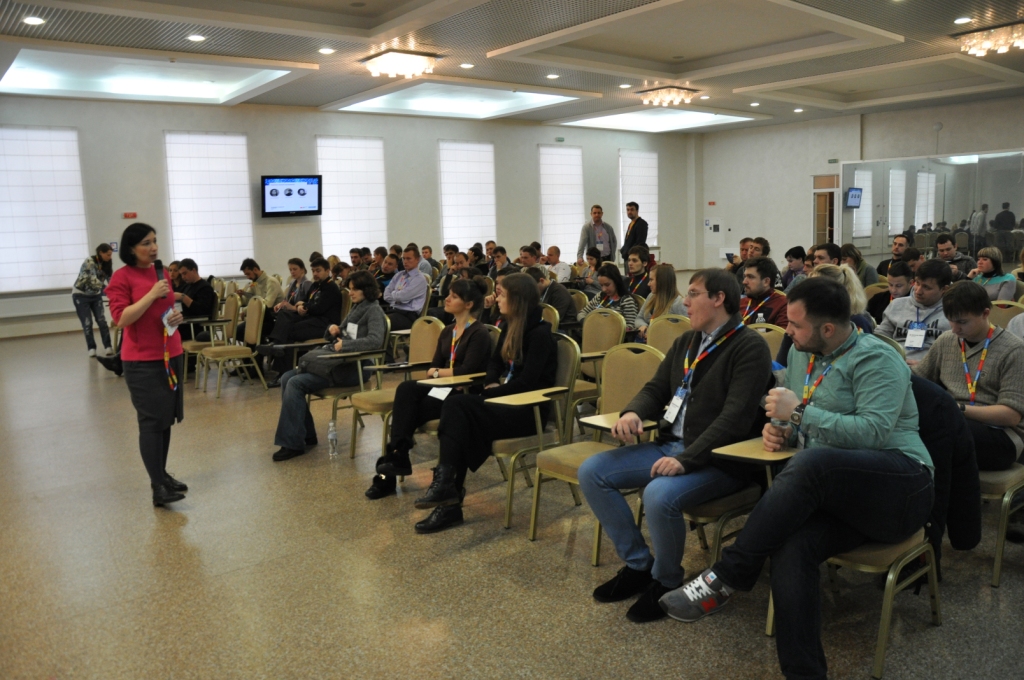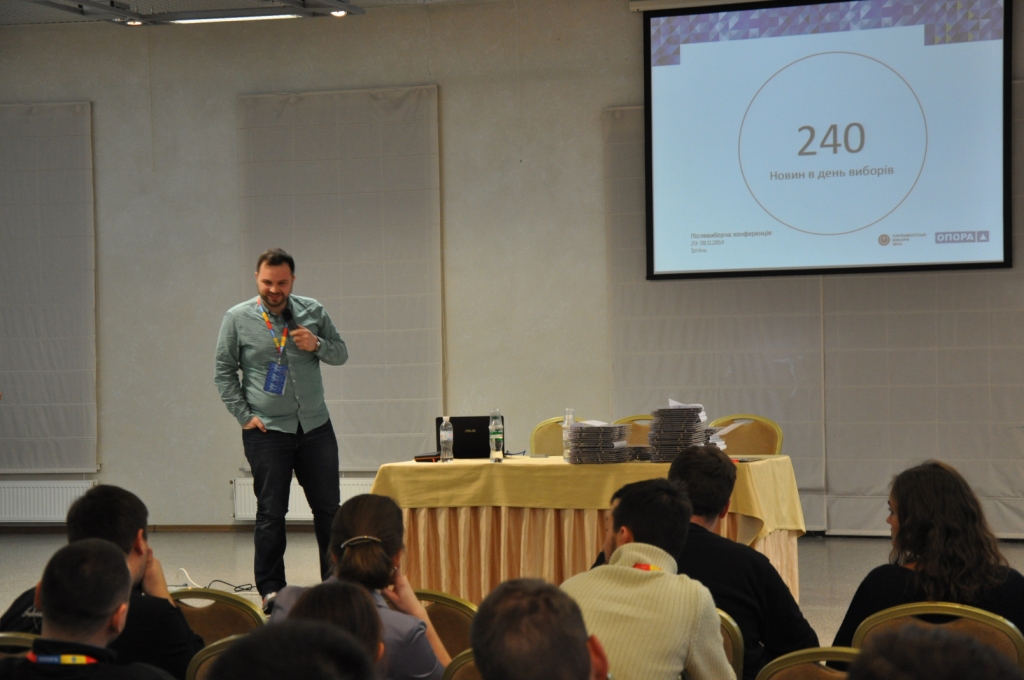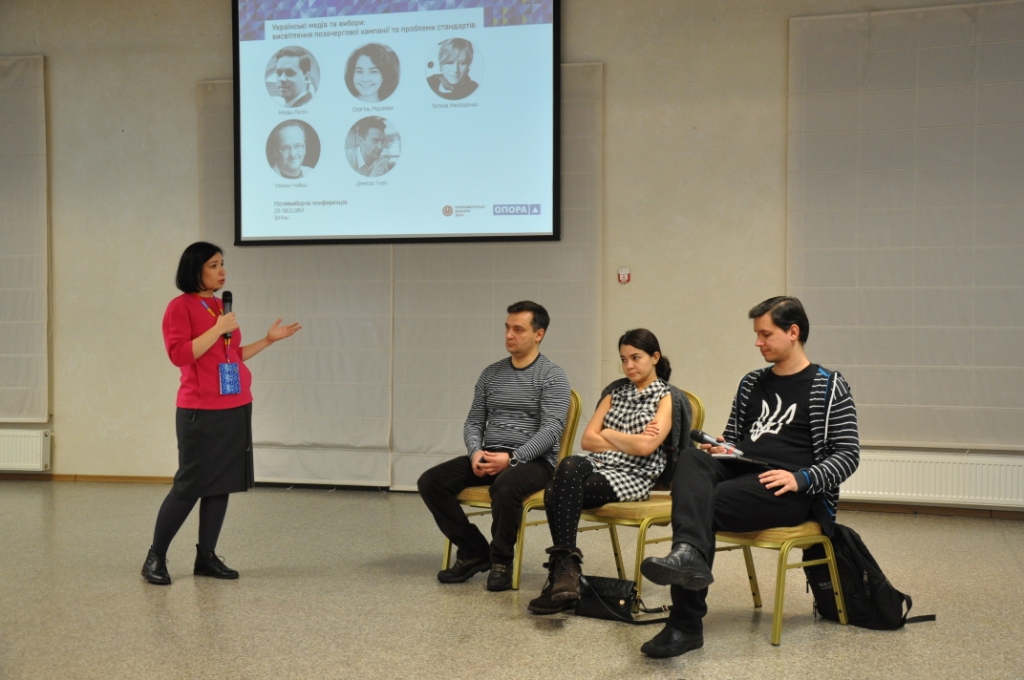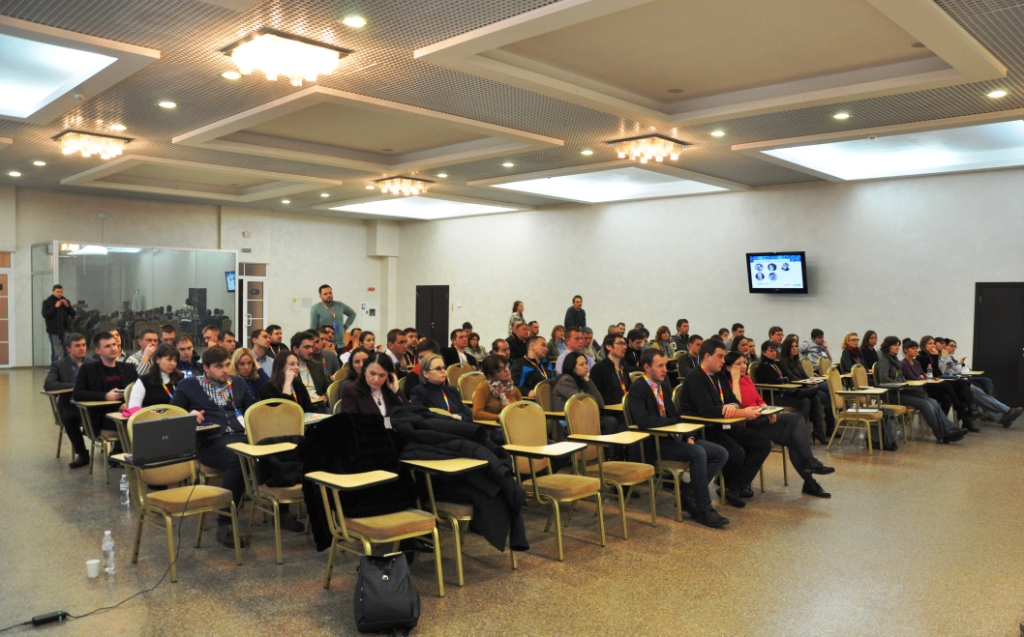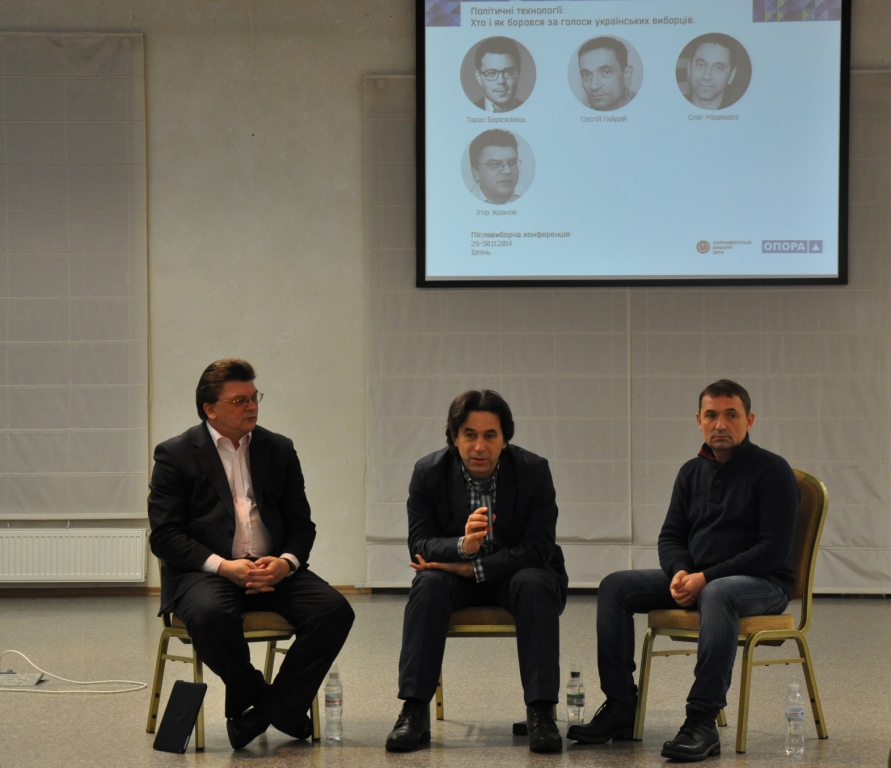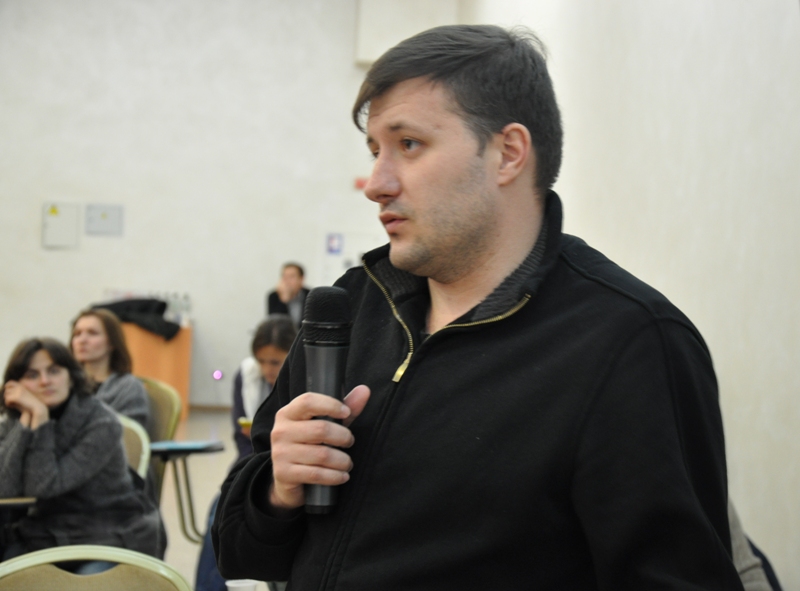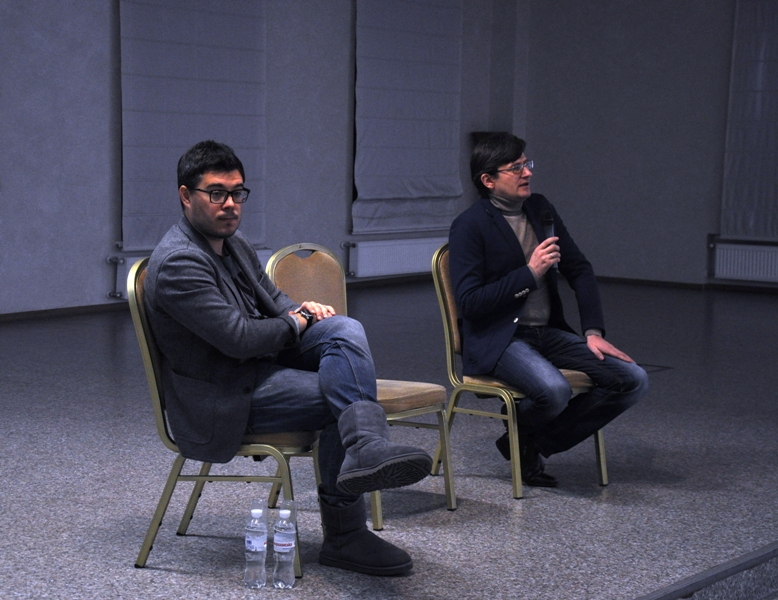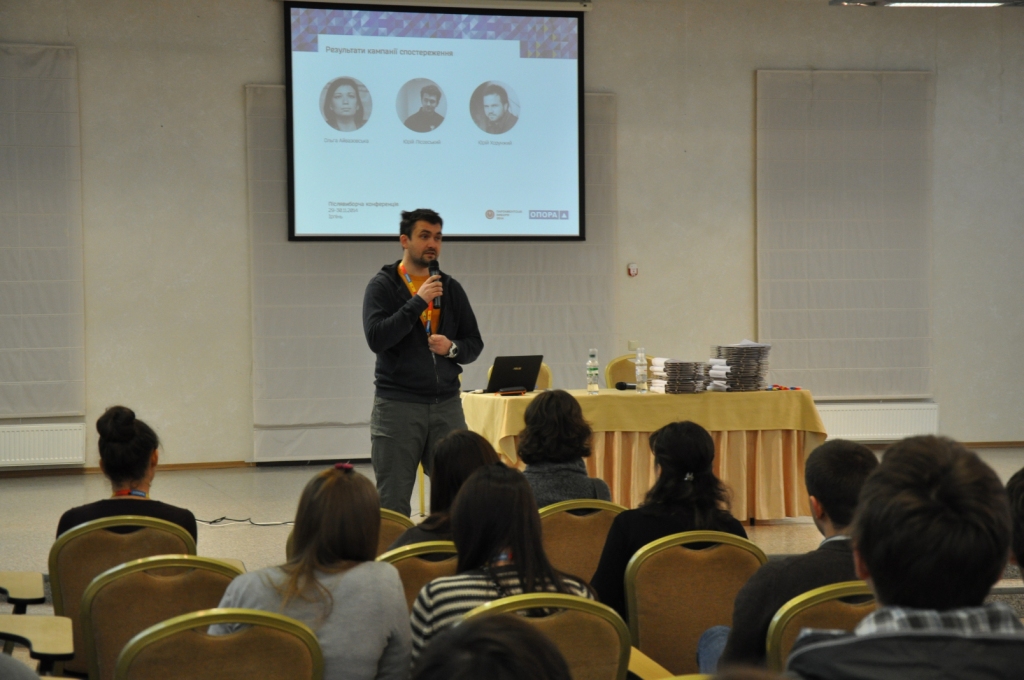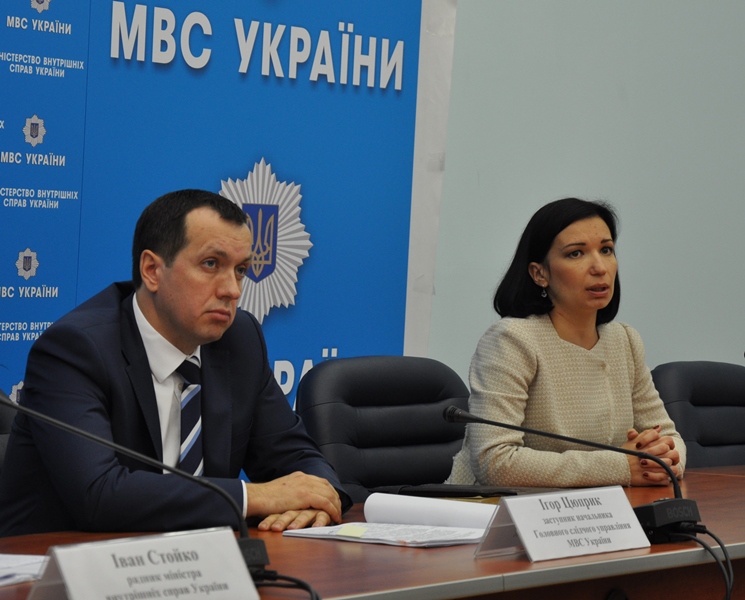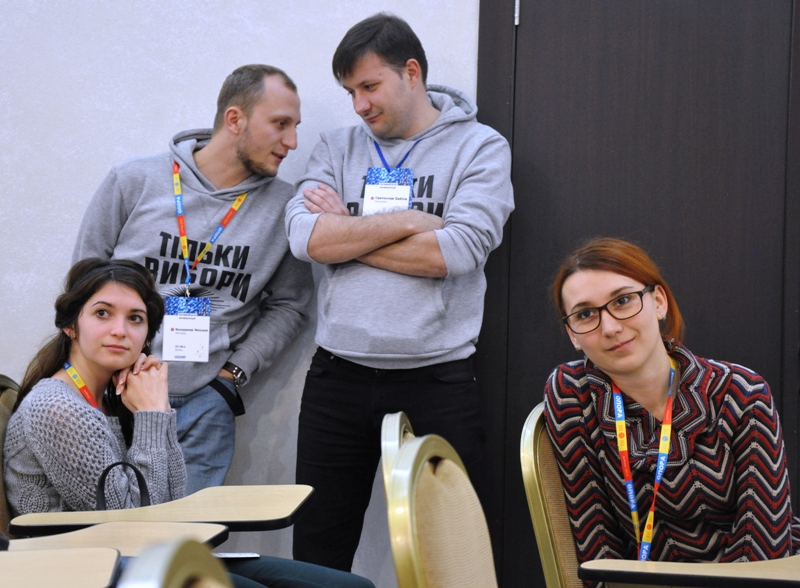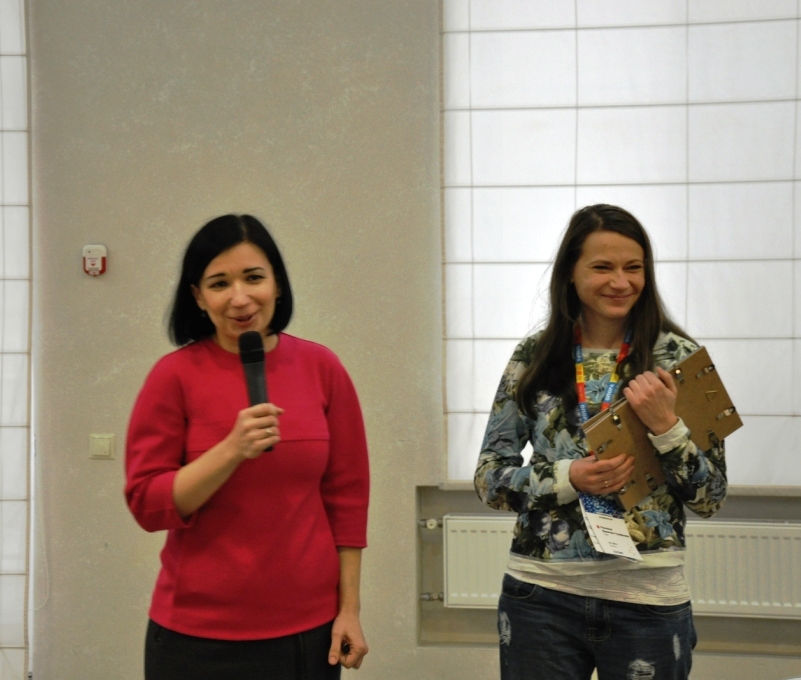On 29 and 30 November, OPORA's activists together with political analysts, journalists, media managers and experts of the election law discussed the course and results of 2014 parliamentary election campaign, as well as challenges and threats that can emerge in current social and political situation.
Every time after tense but efficient election monitoring campaign, OPORA gathers the most active participants from all regions of Ukraine in order to sum up the work accomplished during the campaign and plan future activities. This time, famous experts and opinion leaders visited the final conference and helped OPORA's activists to improve their level of competence, form a diverse opinion on social and political processes, and critically reflect upon personal and professional challenges in new social realities.
The team of Civil Network OPORA has summarized 2014 election campaign. Parliamentary and Electoral Programs Coordinator at OPORA Olha Aivazovska has congratulated all participants for the efficient election observation campaign, participated by 4,5 thousand officially registered observers of the OPORA (including 213 long-term observers all over Ukraine). She has also mentioned that the level of cooperation between activists from different regions was quite high, as well as between Kyiv team and regional offices. Olha Aivazovska emphasized that OPORA became the first and only organization which had published the results of parallel vote tabulation (PVT) yet on 27 October (PVT was conducted by 1,477 specially trained observers of the OPORA) and publicly announced that the AUU Svoboda didn't manage to overcome 5% threshold, and that the People's Front took the first place, while the Petro Poroshenko Block was on the first place in party lists according to all exit-polls. Undoubtedly, observation in Donetsk and Luhansk oblasts became a challenge for the organization, as long as OPORA's observers faced health and life threats and constant hazard from illegitimate armed groups there. Olha Aivazovska stated that dedication of local OPORA's observers and civic activists, ready to protect the choice of their fellow countrymen, played the essential role in organization of the election process and even the possibility to hold elections in these oblasts.
Yurii Khorunzhyi, the Head of OPORA's Press Service, had summarized the results of cooperation with the media during election campaign and informed that more than 262,000 unique users entered OPORA's website during the election campaign, and that the international media showed an increased interest in the unbiased domestic observation of elections in Ukraine.
The first panel discussion concerned the coverage of election campaign by Ukrainian media and the general mass media standards in the time of social and political tensions. Milan Lelich, political correspondent of the all-Ukrainian newspaper Focus, stated that this year's race had the following peculiarity: representatives of oligarchic groups (who own many Ukrainian TV channels and media holding companies) competed on leading channels by supporting the certain party or candidate and openly slinging mud at their competitors. Sevhil Musaieva-Borovyk, the Chief Editor of the most popular online news site Ukrainska Pravda, emphasized that despite there is undeclared war with Russia, Ukrainian media should not become an instrument of propaganda, but adhere to media transparency standards and strive to provide unbiased and full coverage of the problems with mandatory verification of information sources. Dmytro Hnap, a journalist and leader of the Slidstvo.Info project, provided some examples of dirty campaigning that occurred in parliamentary elections, for example that the transparency of the Samopomich party financing was still unclear. However, the journalist stated that large advertising expenses campaign financing of the Samopomich party were covered by resources, accumulated through participation in legal and semilegal private schemes controlled by leader of the party Andrii Sadovyi.
The second discussion panel involved the following speakers: political technologist, Vice-Presipent of the PR-Liga, Advisor to the President and the Prime Minister of Ukraine Oleh Medvediev; political technologist, owner of the GAIDAY.COM Social Engineering Agency Serhii Haidai; President of the Open Policy Analytical Center and the Minister of the Youth and Sports of Ukraine (appointed on 2 December) Ihor Zhdanov. Conference participants and experts of political technologies and election campaigns had a chance to discuss pre-electoral division of forces and party ratings of the so-called "pro-democratic team" as well main campaigning tendencies, for example: war and peace rhetorics, renewal of party teams and updates in party lists, new faces in power. Participants have also discussed pre-electoral manipulations, problematic districts in some Ukrainian regions, and creation of name-bearing blocks and "post-Maidan" parties in a few months. Besides that, experts told about some backstage details of coalition formation in newly-elected Parliament, and shared their forecast for the development of social and political situation in the nearest future.
As long as the anniversary of the Euromaidan and the Revolution of Dignity is in the end of November, as well as forced dispersal of peaceful student demonstration on 30 November 2013, conference participants started the second day with a short movie about the events of autumn 2013 - spring 2014 in Ukraine, prepared by Andrii Saichuk, journalist of the Hromadske TV. After the film, OPORA's activists shared their thoughts and opinions on past events and current situation in the country, particularly in Donetsk and Luhansk oblasts and in Crimea.
Participants actively took part in the discussion lead by Taras Berezovets, political technologist and Director of the Berta Communications company for personal and strategic consulting, and Andrii Mahera, Deputy Head of the Central Election Commission, which concerned elections during active hostilities and occupation of the Autonomous Republic of Crimea by Russia, as well as the opportunity to improve electoral legislation and secure Ukraine's development after elections. According to the experts, organization of the election process in both parliamentary and presidential elections faced unprecedented challenges, and justice and court systems should be reformed to bring to responsibility the guilty in voter bribery, undue organization of electoral process in some districts, and falsification of electoral documents.
After the experts of electoral process, Long-term observation coordinator at OPORA Yurii Lisovskyi presented a master class on the electoral statistics and methods used for the analysis of election results. According to the expert, basis knowledge of statistical analysis can significantly help to reveal electoral falsifications and attempts to distort results or exaggerate the turnout, what was supported by specific examples of election results in some districts of Ukraine and Russia.
In the end of the conference, election law experts discussed with OPORA's activists pluses and minuses of proportional system with open regional lists. Denys Kovryzhenko, Legal Advisor of the International Foundation for Electoral Systems (IFES-Ukraine) and Yevhen Radchenko, Development director of the Internews Ukraine NGO stated that there are some problems with adoption of the corresponding legislation, and the future need to train tens and hundreds members of election commissions all over Ukraine as well as the voters, in order to make new system work. Conference participants have also discussed 2015 local elections held in spring, while experts forecasted possible amendments to the law on local elections and amendments to the Constitution concerning decentralization and reorganization of local self-government system, which may substantially change the formation of local governments.
We are grateful to all the experts for fruitful discussions and critical analysis of 2014 elections and future challenges. We are also grateful to every participant of the conference, and all OPORA's activists for joining the 2014 early parliamentary election observation campaign, it's valuable contribution to the development of democratic state.
